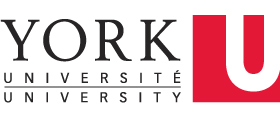The City and the Pandemic

COVID-19 warning on highway in Toronto, March 2020. EelamStyleZ photograph.
This week are sharing two pieces by Stefan Kipfer that speak to the ongoing COVID-19 pandemic.
The Naked City: Traversing Toronto in pandemic times
Although the bodily experience of mass mobilization seemed to suggest otherwise at first, the pandemic is still here. People are dying. Sanitary states of emergency are used in some places to limit the return to collective action. The economic crisis and its consequences, mass unemployment and a crisis of subsistence for hundreds of millions of people in the world, particularly in the global South (International Labor Organisation 2020), are still unfolding. In this context, it matters a great deal to ask: how does the pandemic crisis unfold at the level of everyday life in different parts of the world? How do the spatialized tensions of daily life translate into popular capacities to organize and mobilize? What do our daily rounds tell us about how to plan a different world? The link between everyday life and politics is never straightforward. It may be spontaneous but never automatic. Ultimately, it has to be organized.
Read the full piece here.
Espace urbain et distanciation sociale
La « distanciation sociale » est le nouveau concept que les gouvernements utilisent pour nommer la gestion de la crise du Covid-19. Ce concept omniprésent dans la communication dominante indique un modèle de gestion de l’urgence sanitaire qui varie selon les géographies et les pays qui l’ont adopté. Les distances spatiales, les techniques de séparation et la ségrégation, comme vous l’avez souligné dans vos recherches, structurent l’organisation des relations sociales en fonction de la classe, de la race et du genre. Dans quelle mesure, et comment, cette nouvelle « distanciation sociale » représente une transformation et un durcissement pour ces relations ? Est-ce que de ce point de vue la crise actuelle marque et établit une discontinuité dans ces rapports sociaux ?
Read the full piece (en français) here.
Stefan Kipfer is Associate Professor in the Faculty of Environmental and Urban Change at York University. His empirical research has focused on urban politics, urbanization and planning in transnational and comparative context. In various parts of Euro-America, including the global cities Zurich, Toronto and Paris, he has researched a range of urban social movements and their geographical imaginaries and various forms of state intervention. Most recently, he has moved to research the rise of right-wing populism and neo-fascism as well as emancipatory responses to these far-right tendencies and regimes.
